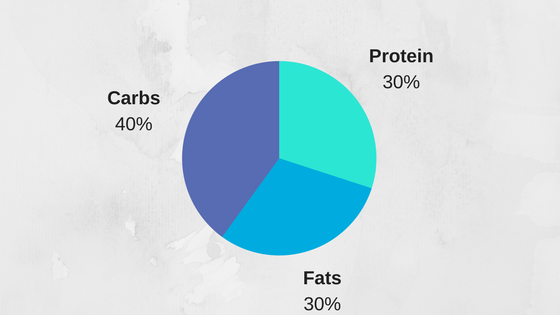Nutritional jargon can be confusing so we’re here to break it down and help you make the right choice for you.
So, what are Macros?
‘Macros’ is an abbreviated term for macronutrients. There are three essential macronutrients: proteins, fats, and carbohydrates. They’re called macros because they are fundamental in proper bodily function, and the body needs a large quantity of them. Alcohol is sometimes listed as a fourth macronutrient, although it is considered nonessential by nutrition coaches.
Macros works on a quota system, so you decide what proportion of each type of macro to allow yourself per day. Australian dietary guidelines recommend that carbohydrates should equate to 45-55% of our daily food intake, fats around 20-35%, and proteins about 15-20%.
However, this may vary depending on your lifestyle, fitness goals or training programme. In order to help you make an informed decision about the right macro levels for you, we’ve outlined the key features and benefits of the three essential macronutrients.
Proteins
Protein is made up of amino acids, and is commonly found in animal products, particularly meat and eggs, but can also be found in legumes and nuts. Proteins are great because they make you feel fuller for longer, and so prevent overeating. Protein is also great at helping build muscle mass, which in turn boosts the body’s metabolism.
Carbohydrates
Carbs are the sugars, fibres and starches found in grains, fruit and vegetables. They are the main source of energy for your body, providing fuel for your brain, nervous system and muscles. The trick with carbs is to choose the right ones; try to select complex carbohydrates such as beans, potatoes, lentils or whole-grains instead of simple carbs, which are primarily sugar, such as chocolate, soft drinks or syrups.
Fats
People often fear fats, but they are an essential macronutrient. Fats contain mixtures of fatty acids and are used to absorb nutrients and provide an energy reserve for our bodies. There are two types of fats: saturated and unsaturated. Try to avoid saturated fats, which can cause high cholesterol, and instead consume unsaturated fats like avocado, seeds and nuts.







